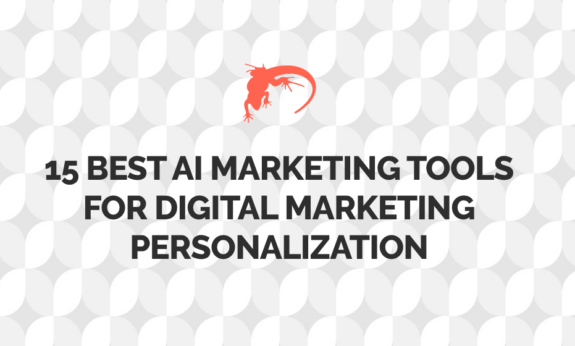Marketing Strategies to Sell Your Online Business for Top Dollar

So, you put in the blood, sweat, and tears, the long weekends, and the midnight hours. Now, your online business is a success, and it’s time to sell the business for a profit so you can move on to your next adventure!
Even though you are considering selling your business, it’s still your ‘baby.’ You want the maximum dollar amount that reflects your business’s true value, which needs to take into account your products and/or services, your hard work, and the goodwill you have built up within your industry.
With a lot of experience in helping position companies for successful sales with solid marketing strategies, we’ll walk you through the nuts and bolts of boosting leads and sales pre-offer and targeting the right efforts that pay big dividends in the final negotiation.
Selling Your Online Business for Maximum Profit
Are you struggling to find the right time to sell your online business? Are you concerned that you won’t get the full value for all your hard work? Selling an online business is a complex process that requires a deep understanding of market timing, buyer behavior, and the unique value of your digital presence.
There are key sales and marketing strategies that you can use to position your online business to attract serious buyers and secure a sale that reflects the true worth of your digital business. But first, should you navigate the online landscape alone or find a knowledgeable partner – the online broker?
Choosing to Use an Online Broker vs. Doing It Yourself
The idea of selling your online business alone can feel overwhelming, and rightfully so — the decision between using an online broker or navigating an independent sales process can be paralyzing.
Brokers offer expertise, results, and reach far beyond what you may have, but at a cost for fees and commissions or other ancillary services, like locating legal support, etc. The upside of using a broker is their ability to value your business equitably, market it to an extended base of potential buyers, and, with their extended reach, they are more likely to find prospective buyers willing to pay a fair rate for your online business.
Meanwhile, going it alone promises control and potential cost savings but with a steep learning curve. Be sure to learn the pros and cons of each path and make an informed choice that could save you thousands of dollars and countless hours.
Leveraging Your Marketing Strategies to Escalate Your Business’s Value Pre-Sale
Could your sales approach undervalue your business before it even hits the market? Many online business owners neglect the power of targeted marketing strategies in the run-up to a sale. From social media buzz to email marketing campaigns to boosting SEO, enhancing your online presence can lead to a significant increase in perceived business value.
Reevaluating your marketing strategies to uncover tactics and options can not only boost leads and buyers but can also lead to a bidding war when you put your digital business on the market.
Improving the User Experience — A Game Changer for Online Business Sales
Could a lackluster user experience be sabotaging your business’s marketability?
The quality of the user experience on your website can greatly impact buyer perceptions and the eventual sale price of your online business. From site speed to navigation, every aspect plays a vital role in retaining visitors and converting interest into sales.
Let’s look at how enhancing the user experience can create a ripple effect that increases your bottom line and draws in premium buyers. You may want an expert opinion from an expert website design and development firm that can perform a full audit and recommend needed changes and/or upgrades.
User experience (UX) encompasses all aspects of the end-user’s interaction with your company, its services, and its products. The goal of UX design is to create accessible, efficient, relevant, and all-around pleasant experiences for the user. If your website lacks any of the following attributes, consider a site makeover before putting your company on the market.
- Usability — How easy and intuitive it is for users to navigate your site, find the information, product, or service they want, and make a sale. Your site needs a straightforward interface, logical navigation, and a shallow learning curve.
- Functionality — Your website must work correctly and as expected. Broken features or incorrect content can quickly sour a user’s experience.
- Speed and Efficiency — Fast sites that are mobile responsive lead the way with users. Visitors and potential customers want to achieve their goals quickly and easily — fast answers and improved productivity are the goal.
- Accessibility — Ensure your website is usable for everyone regardless of abilities, including those with disabilities. This includes considerations for visual, auditory, motor, and cognitive impairments.
- Design and Brand Look — The design elements used on your website evoke emotion. This will include branding, image, identity, aesthetics, and design that presents your company and products in a desirable light.
- Findability — Information on your site should be easy to find. This applies to physical products, services, digital interfaces, and a user’s ability to find the information they want through SEO and other marketing strategies.
- Trustworthiness and Credibility — Your company’s website should convey trustworthiness. This involves clear, honest communication and a professional presentation of information through the use of testimonials, reviews, and User-Generated Content (UGC).
- Personalization — Tailoring the user experience to meet different users’ needs or preferences can significantly enhance UX.
- Consistency — Maintaining a uniform design across the website helps to prevent confusion and reduce the learning curve for users. A confusing website leads to a high bounce rate as users ‘bounce’ back to the search results page to find another option.
- Context — The user’s environment, conditions, and requirements when using the website should be considered in the design. Are they using your site on a mobile device? Do you have adequate security to ensure risk-free purchases?
- Feedback & Support — Users should receive appropriate feedback in response to their questions and have access to help or support when needed. Whether you use Artificial Intelligence (AI) chatbots or actual live support, your customers should be able to reach a resolution quickly.
SEO and Keyword Research — The Invisible Drivers of Sale Value
Are you underestimating the impact of SEO and keyword optimization on your sale price? A well-structured SEO strategy can significantly drive traffic, increasing your business’s attractiveness to potential buyers.
But there’s a catch – not all traffic is good traffic. Dive into how targeted keyword research can attract the right buyer and how neglecting this can lead to undervaluing your business. An SEO Audit can answer those questions and provide suggestions to boost website performance.
Using Technical and AI-Driven SEO to Sell Your Online Business
Do you know how AI-driven search engines are ranking your website? In an era where AI is revolutionizing search algorithms, technical SEO has never been more critical, including these parameters:
- Website architecture
- Improving your website’s speed
- Mobile responsiveness and friendliness
- Site security (SSL)
- Structured data
- Submitting your sitemap to Google
- Creating an SEO-friendly site structure
- Duplicate content
Technical SEO can make or break your site’s authority and visibility. Learn how optimizing your site for these AI advancements can dramatically increase its selling price by ensuring it meets the technical benchmarks for top-tier search engine rankings.
Outsell Your Competitors with Reverse Engineering
Does your business stand out enough against competitors to command a top-dollar sale?
In a sea of online businesses, finding and exploiting your competitive edge can mean the difference between an average and a premium selling price. Explore how reverse engineering your competitors’ strategies can provide you with the insights to position your business as the prime opportunity in your niche.
To create excellent reverse engineering opportunities, use strategies, like an SEO Audit or analysis, that evaluate your competition, identify the best practices they employ, and recreate or duplicate a similar process or system within your business.
The Critical Assessment You Can’t Afford to Ignore — the CRO Audit
Conversion Rate Optimization (CRO) is often the unsung hero of an online business’s value. A comprehensive CRO audit can uncover hidden pain points that, once addressed, can substantially increase the appeal of your business to buyers.
Be sure you grasp the essential components of a CRO audit and understand how minor tweaks can lead to substantial valuation leaps through an assessment of a website and the marketing channels that lead to it. The goal of a CRO audit is to identify opportunities to improve conversion rates.
To Sum Up
By addressing these critical areas with clear, actionable strategies, you position your online business not just to sell but to sell for top dollar in a competitive digital marketplace. Buyers are looking for turnkey operations with clear value propositions, and by refining these facets of your online business, you ensure that you meet and exceed those expectations.
Contact Lounge Lizard Worldwide today to learn more about business valuation and marketing strategies to boost and support the sale of your online business.





